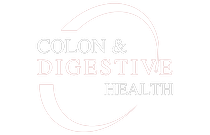Which Personalized Risk Evaluation Strategies Are Used for Colon Cancer Prevention?

- colondigestive
- July 29, 2024
- 4:06 pm
- No Comments
As you navigate the complexities of maintaining your digestive health, understanding your risk for colon cancer is crucial. You may have wondered what sets you apart from others regarding your likelihood of developing this disease. The good news is that personalized risk evaluation strategies can help identify your unique risk factors, enabling you to take proactive steps towards prevention. In this article, we’ll explore the various approaches used to assess your risk and how they can inform your colon cancer prevention plan. Dr. Karim Shakoor will provide expert insights into these strategies and their impact on your health.
Key Takeaways:
- Risk Assessment Models: Several risk evaluation strategies are used for colon cancer prevention, including the Colorectal Cancer Risk Prediction Model, the Asia-Pacific Colorectal Screening (APCS) score, and the Colorectal Cancer Predicted Risk (CRPR) model. These models consider various factors, such as age, family history, and lifestyle habits, to estimate an individual’s risk of developing colon cancer.
- Genetic Testing: Genetic testing, including fecal occult blood testing (FOBT) and molecular biomarkers, can help identify individuals with a high risk of colon cancer. This information can guide personalized screening and prevention strategies.
- Lifestyle Modifications: A healthy diet, regular exercise, and healthy weight can reduce the risk of colon cancer. Additionally, aspirin therapy has been shown to have a protective effect against colon cancer in certain individuals.
- Screening Strategies: Different screening strategies, such as colonoscopy, flexible sigmoidoscopy, and stool-based tests, can be used to prevent colon cancer. The choice of strategy depends on individual risk factors and preferences.
- Personalized Prevention Plans: Healthcare providers can develop personalized prevention plans based on an individual’s risk profile, considering their medical history, lifestyle, and genetic factors. This approach can help reduce the incidence of colon cancer and improve patient outcomes.
The Importance of Personalized Risk Evaluation
Your risk profile plays a crucial role in determining the most effective strategy for colon cancer prevention. With colon cancer being the second leading cause of cancer deaths in the United States, it’s important to move beyond a one-size-fits-all approach and instead focus on personalized risk evaluation.
Why One-Size-Fits-All Approaches Fall Short
Short of considering individual factors, traditional screening methods often fail to identify high-risk individuals who may require more aggressive screening or early intervention. This oversight can lead to delayed diagnoses and poorer outcomes.
The Role of Risk Assessment in Colon Cancer Prevention
Cancer prevention is not a one-size-fits-all endeavor. Your unique risk profile, including family history, genetic predisposition, and lifestyle choices, must be considered to develop an effective prevention strategy.
The role of risk assessment goes beyond mere screening. It enables healthcare providers to identify individuals at high risk of developing colon cancer, allowing for targeted interventions and timely treatment. By incorporating personalized risk evaluation into colon cancer prevention, you can benefit from more accurate risk stratification, tailored screening recommendations, and improved health outcomes. Colon & Digestive Health is committed to providing these advanced risk assessment services to enhance preventive care.
Genetic Testing for Colon Cancer Risk
It is vital to understand that genetic testing plays a crucial role in identifying individuals at high risk of developing colon cancer. This type of testing can help you and your healthcare provider create a personalized prevention strategy tailored to your unique needs.
What Genetic Markers Are Linked to Colon Cancer?
The presence of certain genetic mutations, such as Lynch syndrome and familial adenomatous polyposis (FAP), can significantly increase your risk of developing colon cancer. These genetic markers are responsible for approximately 5-10% of all colon cancer cases.
How Genetic Testing Can Inform Prevention Strategies
With genetic testing, you can gain valuable insights into your genetic predisposition to colon cancer. This information can help you and your healthcare provider develop a targeted prevention plan, including more frequent screenings, lifestyle modifications, and potentially even preventive surgeries.
To illustrate, if you test positive for a genetic mutation associated with Lynch syndrome, your healthcare provider may recommend more frequent colonoscopies, starting at a younger age, to detect and remove precancerous polyps before they become cancerous. Additionally, you may be advised to undergo regular screenings for other cancers, such as endometrial and ovarian cancer, which are also linked to Lynch syndrome. By understanding your genetic risk profile, you can take proactive steps to reduce your risk of developing colon cancer and improve your overall health outcomes.
Family History and Colon Cancer Risk
Now, let’s explore the significant role that family history plays in evaluating your risk of developing colon cancer.
The Impact of Family History on Colon Cancer Risk
Heredity can be a strong predictor of colon cancer risk. If you have a first-degree relative (parent, sibling, or child) who has been diagnosed with colon cancer, your risk increases by 2-3 times. In fact, according to the American Cancer Society, about 20% of people diagnosed with colon cancer have a family history of the disease.
How to Assess and Interpret Family History
Interpretation of your family history is crucial in determining your risk of colon cancer. Your healthcare provider will ask you questions about your family medical history, including the age of diagnosis and type of cancer.
Family history assessment involves gathering information about your relatives, including grandparents, aunts, uncles, and cousins. Be prepared to provide details about their medical history, including any cancer diagnoses, ages of diagnosis, and any genetic testing results. Your healthcare provider will use this information to assess your risk and develop a personalized screening plan tailored to your needs.
Lifestyle Factors and Colon Cancer Risk
Despite the importance of genetic and environmental factors, lifestyle choices play a significant role in colon cancer risk. Your daily habits and behaviors can either increase or decrease your likelihood of developing colon cancer. Here are some key lifestyle factors to consider:
- Diet and nutrition
- Physical activity
- Smoking and alcohol consumption
After understanding these factors, you can proactively reduce your colon cancer risk.
The Role of Diet and Nutrition in Colon Cancer Prevention
One of the most critical lifestyle factors is your diet. A diet rich in fruits, vegetables, and whole grains can help reduce colon cancer risk. In contrast, a diet high in processed meats, sugar, and saturated fats can increase it. According to the American Cancer Society, a healthy diet can reduce colon cancer risk by up to 40%.
Physical Activity and Colon Cancer Risk Reduction
Cancer prevention experts recommend regular physical activity to reduce colon cancer risk. At least 30 minutes of moderate-intensity exercise, such as brisk walking, cycling, or swimming, daily can help lower your risk.
Diet and physical activity are closely linked. A healthy diet provides the necessary energy for regular physical activity, which in turn helps maintain a healthy weight and reduces colon cancer risk. The World Health Organization recommends at least 150 minutes of moderate-intensity exercise or 75 minutes of vigorous-intensity exercise per week to reduce colon cancer risk.
The Impact of Smoking and Alcohol on Colon Cancer Risk
Factors such as smoking and excessive alcohol consumption can significantly increase your colon cancer risk. Smoking is a well-established risk factor for many cancers, including colon cancer. The American Cancer Society estimates that smokers are 30% more likely to develop colon cancer than non-smokers. Similarly, excessive alcohol consumption can increase colon cancer risk by up to 20%.
Cancer prevention experts strongly advise against smoking and excessive alcohol consumption. Quitting smoking and limiting alcohol intake to moderate levels (one drink per day for women and two drinks per day for men) can help reduce colon cancer risk.
Biomarkers for Colon Cancer Risk
Once again, the quest for effective colon cancer prevention strategies leads us to explore the role of biomarkers in personalized risk evaluation. Biomarkers are biological molecules that can indicate the presence or risk of a disease. In the context of colon cancer, they have the potential to revolutionize early detection and prevention. Colon & Digestive Health is at the forefront of utilizing these biomarkers to enhance patient care and outcomes.
What Are Biomarkers, and How Do They Work?
Biomarkers are measurable indicators of biological processes that can be used to identify individuals at high risk of developing colon cancer. They can be found in bodily fluids, tissues, or cells and can be genetic, epigenetic, or protein-based. By analyzing biomarkers, healthcare providers can gain valuable insights into genetic predisposition, environmental exposures, and biological responses, enabling them to tailor prevention strategies to each individual’s unique needs.
The Potential of Biomarkers in Personalized Risk Evaluation
Biomarkers hold immense promise in personalized risk evaluation. They allow healthcare providers to identify individuals who would benefit from more intensive screening or preventive measures. By detecting biomarkers associated with colon cancer, you can take proactive steps to reduce your risk, such as undergoing regular colonoscopies or making lifestyle changes.
Potential applications of biomarkers in personalized risk evaluation include identifying high-risk individuals, monitoring treatment response, and detecting recurrence. For instance, a biomarker panel that provides DNA methylation markers, such as SEPT9, has been shown to detect colon cancer accurately. Similarly, fecal occult blood testing (FOBT) and fecal immunochemical testing (FIT) can detect stool blood, indicating colon cancer or polyps. By leveraging these biomarkers, you can work with your healthcare provider to develop a personalized prevention plan that addresses your unique needs and reduces your risk of colon cancer.
Risk Assessment Models and Tools
Many healthcare providers and researchers have developed various risk assessment models and tools to help identify individuals at high risk of developing colon cancer. These models and tools are vital in personalized risk evaluation strategies for colon cancer prevention.
Overview of Existing Risk Assessment Models
For instance, the Colorectal Cancer Risk Prediction Tool (CCRPT) is a widely used model that considers factors such as age, sex, family history, and lifestyle habits to estimate an individual’s risk of developing colon cancer. Another example is the Mayo Clinic’s Colon Cancer Risk Calculator, which considers factors like age, family history, and genetic markers to predict an individual’s risk.
How to Choose the Right Risk Assessment Tool
For effective colon cancer prevention, it is crucial to select a risk assessment tool that suits your specific needs and circumstances. When choosing a tool, consider factors such as your family history, medical history, and lifestyle habits.
Assessment of your risk factors is critical in selecting the right tool. For example, suppose you have a strong family history of colon cancer. In that case, choose a tool that places more emphasis on genetic markers. On the other hand, if you’re concerned about the impact of lifestyle habits on your risk, you may opt for a tool that incorporates factors such as diet and physical activity. You can choose a risk assessment tool that provides accurate and personalized results by carefully considering your unique situation.
Implementing Personalized Risk Evaluation in Clinical Practice
Unlike traditional one-size-fits-all approaches, personalized risk evaluation strategies require tailoring to each patient’s unique needs and circumstances. As you incorporate these strategies into your clinical practice, it’s imperative to consider the challenges and opportunities of implementation.
Challenges and Opportunities in Clinical Implementation
Implementing personalized risk evaluation strategies can be complex, requiring significant changes to existing workflows and infrastructure. However, this shift also presents opportunities for improved patient outcomes, enhanced patient engagement, and more efficient resource use.
Strategies for Effective Patient Communication
Communicating complex risk information to patients can be daunting. Still, it is crucial to empower them to make informed decisions about their care. When developing a communication strategy, you must consider the patient’s health literacy, cultural background, and individual preferences.
With effective patient communication, you can increase patient engagement, improve adherence to screening and prevention recommendations, and reduce anxiety and uncertainty. By using clear, concise language and incorporating visual aids, such as risk profiles and decision trees, you can help patients better understand their personalized risk assessment and make informed decisions about their care.
To wrap up
Ultimately, you now better understand the various personalized risk evaluation strategies that can help prevent colon cancer. Recognizing your unique risk factors and taking proactive steps can significantly reduce your chances of developing this disease. Recall it’s crucial to consult with a qualified healthcare professional, such as a gastroenterologist like Dr. Karim Shakoor, to determine the best approach for your individual needs. With the right guidance and preventive measures, you can take control of your health and minimize the risk.
FAQ
Q: How important is personalized risk evaluation in colon cancer prevention?
A: Personalized risk evaluation is crucial in colon cancer prevention as it helps identify individuals at high risk of developing colon cancer. This allows for early intervention, such as targeted screening and prevention strategies, which can significantly reduce the risk of colon cancer. By assessing an individual’s unique risk factors, healthcare providers can develop a personalized plan to prevent colon cancer or detect it early when it is more treatable.
Q: What common risk factors are considered in personalized risk evaluation for colon cancer?
A: Common risk factors considered in personalized risk evaluation for colon cancer include family history of colon cancer or polyps, personal history of inflammatory bowel disease, inherited syndromes such as Lynch syndrome or familial adenomatous polyposis (FAP), age, ethnicity, diet, physical activity level, and smoking status. Additionally, medical conditions like type 2 diabetes, obesity, and inflammatory bowel disease may also be considered.
Q: How does genetic testing play a role in personalized risk evaluation for colon cancer?
A: Genetic testing can identify individuals with inherited syndromes that increase their risk of colon cancer. For example, genetic testing can detect mutations in genes associated with Lynch syndrome or FAP. If a genetic mutation is identified, individuals may require more frequent or earlier colon cancer screening, and their family members may also be advised to undergo genetic testing. Genetic testing can also help identify individuals who may benefit from targeted prevention strategies, such as aspirin therapy.
Q: What are some examples of personalized risk evaluation strategies used in colon cancer prevention?
A: Examples of personalized risk evaluation strategies used in colon cancer prevention include risk assessment tools, such as the Colorectal Cancer Risk Prediction Tool, which estimates an individual’s risk of developing colon cancer based on risk factors. Other strategies include tailored screening recommendations, such as earlier or more frequent colonoscopies, and chemoprevention strategies, such as aspirin therapy, for individuals at high risk of colon cancer.
Q: How often should individuals undergo personalized risk evaluation for colon cancer prevention?
A: Individuals should undergo personalized risk evaluation for colon cancer prevention at regular intervals, typically every 5-10 years, or as their healthcare provider recommends. This allows for reassessment of their risk factors and adjustment of their prevention strategy as needed. Additionally, individuals with a family history of colon cancer or those with a personal history of colon polyps may require more frequent risk evaluation and screening.
————————————————————————————————————-
Karim Shakoor, M.D. is a board-certified gastroenterologist and founder of Colon & Digestive Health Specialists, LLC. He completed his residency and fellowship at Cook County Hospital, which is known for having one of the most extensive programs in the country. Karim Shakoor, M.D. is dedicated to providing his patients with the highest level of care to improve their quality of life. He specializes in the treatment of digestive disorders, including abdominal pain, colon cancer, constipation, diarrhea, diverticulitis, gas, gastrointestinal bleeding, heartburn, irritable bowel syndrome, peptic ulcers, swallowing difficulty, and ulcerative colitis.
Schedule an appointment | Google Maps | Services| About Us
© 2024 All Rights reserved © 2024 by Colon & Digestive Health Specialists

